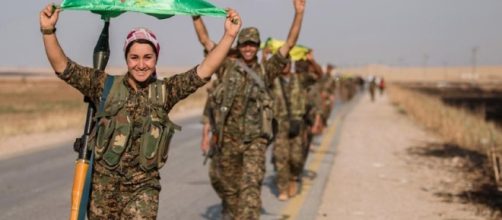U.S. led Syrian forces are now ready to retake ISIS-held territories early this summer. The assault on Raqqa is the initial phase of the invasion of ISIS lands in Syria and Northern Iraq. However, Iran doesn't want Americans to build a buffer zone, which may result from a successful anti-terror campaign in the Middle East.
Why is Iran fearful of a U.S. led coalition to destroy ISIS?
Iran has long been viewed as a belligerent country by the United States. Its missile programs and nuclear ambition causes concern to the global community as it specifically desires to destroy American and Israeli influence in the Middle East.
The Iranian government fears that the coalition led by the U.S. to invade ISIS territories is just a pretext to gain buffer zones in Syria and Iraq where Americans can build installations. It is unacceptable for Iran to allow Americans to build bases in Syria, which is a regional ally. This is especially after the United States bombed a Syrian convoy escorted by Iranian militia, which Iran condemns describing it as a "terrorist attack."
What is the United States plan for dealing with ISIS and the threat of Iran?
The Pentagon is arming Kurdish troops in Syria to start its attack on ISIS. Even in the midst of opposition coming from both Iran and Turkey, the rearming and training of Kurdish troops continues without delay.
A major summer offensive in planned to jump start the invasion of ISIS.
To secure the area from Iranian involvement, the United States will create a coalition of Muslim nations that are against Iran. This is the major agenda of President Trump as he tours the Middle East this week. Trump will create an Arab alliance centered on Saudi Arabia to counter the Iranian threat.
A massive defensive deal was made with Saudi this week as Trump formally signed a $110 billion arms deal with Riyadh. With a strong Saudi military, the United States can focus on dealing with ISIS, while having the Arab alliance deal with Iran.
What will be the end game in the ISIS invasion?
It is not sure what role will the United States assume after the eventual retaking of ISIS territories.
Russia and Iran will be weary once U.S. led forces are victorious and actually gained territory in Syria and Iraq.
Assad's regime will also be in jeopardy, especially with a massive American presence in the Middle East ready to hit key targets in Syria without warning. In the end, Trump's dealings with Saudi Arabia is arguably a game changer in the Middle East.


